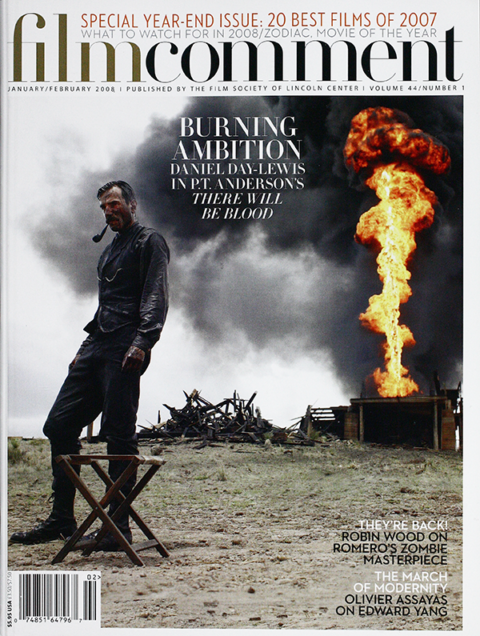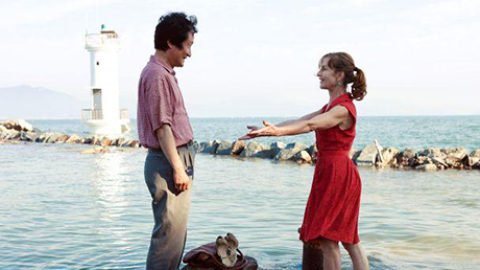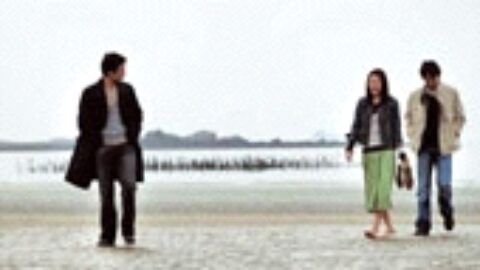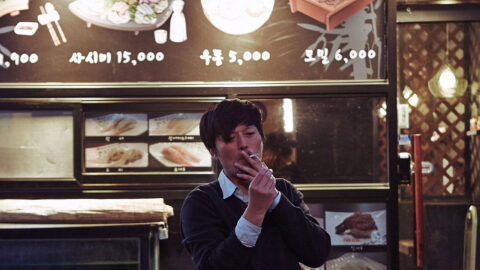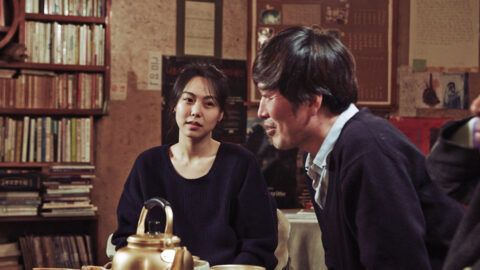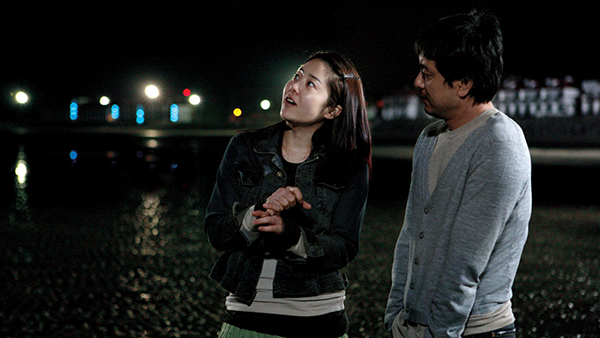
Hong Sang-soo’s fractious dramas of sexual dalliance and social frustration tread a fine line between alienated sophistication and self-indulgent preciosity. Like Ozu but more so, he has chosen a restricted palette of both thematic motifs and formal devices; whether writers, directors, or actors, his protagonists are all filmmakers faced with a crisis of productivity, so their disaffection and self-delusion internally refract allegories of cinematic insecurity. And since the films both emerge from and depict the real-life environment of those who make them, his performers are both persuasively real—their interactions apparently unaffected by the codes of Hollywood or even commercial Korean acting—and reflexive. So, however futile, their sexual peccadilloes still generate a film. As Warhol noted, a bad problem can make for a good tape. And certainly Hong’s working method has been productive. In the last decade, he has spun seven features from this skein, including one a year for the last three years, and received credit as the sole writer on all but the first.
Woman on the Beach takes him back to the kind of coastal resort hotels visited in his second film, The Power of Kangwon Province (98), but now they are wintry and almost deserted. Movie director Jung-rae (Seung-woo Kim) browbeats a pal to accompany him there for a few days so he can complete a script he is blocked on. The pal brings along his girlfriend, Mun-suk (Hyun-jung Go), whom Jung-rae seduces before abruptly deciding to return to Seoul the following day. The second half of the film inverts this sexual triangle. Jung-rae comes back to the beach and, apparently having failed to persuade Mun-suk to join him, uses his fame to seduce a second girl, Sun-hee (Seon-mi Song), who resembles her. When Mun-suk does come, she finds them in bed together, and the three of them spend the rest of the movie maneuvering around their patterned infidelities. As usual with Hong, this involves lengthy soju-drenched meals in which confessions and new dissimulations intertwine. But it’s unusual in that, after the girls get away from Jung-rae and tear each other down, they discover some mutual respect and affection, as well as something about their own identities that is independent of both the director’s manipulation and their roles within the film’s structure. This affords them (and us) the satisfaction of seeing Jung-rae abandoned to his egotistical self-delusion. He, on the other hand, has finished his script—a script that, if it’s not 81⁄2-like, stands a good chance of being Hong’s next saga of sexual greed and insecurity.
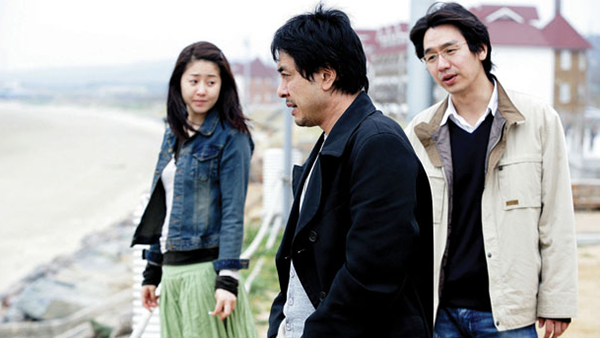
Woman on the Beach is formally less programmatic than Hong’s early films. A more conventional and continuously assembled storytelling has replaced both the prolonged deep-focus takes that used to break his narratives into all-but-autonomous units, and the rigorously abstract structure of, especially, Virgin Stripped Bare by Her Bachelors (00). The internal mirroring is more subtle (though they resemble each other, Mun-suk hates her father, and Sun-hee, her mother), there are no graphic sex scenes, and the women have a fresh resilience. And Hong’s self-indulgence is held in check by the obnoxiousness of his stand-in persona.
These developments may well be a sign of his embracing the Korean film industry’s will-o’-the-wisp wish for a Western audience that is wider and more remunerative than that of the festival circuit. Indeed the film has been warmly received, even as there are indications that Hong’s innovations are filtering down to the overtly commercial cinema: Kim Tae-sik’s Driving with My Wife’s Lover, for example, adapts both Hong’s structural parallels and his surrealist narrative grace-notes (an avalanche of watermelons) to what is otherwise a blend of conventional generic tropes.
But still, you have to wonder how much more interest, cinephile or popular, Hong can mine from the frustrations of insufferable yuppie artistes.



